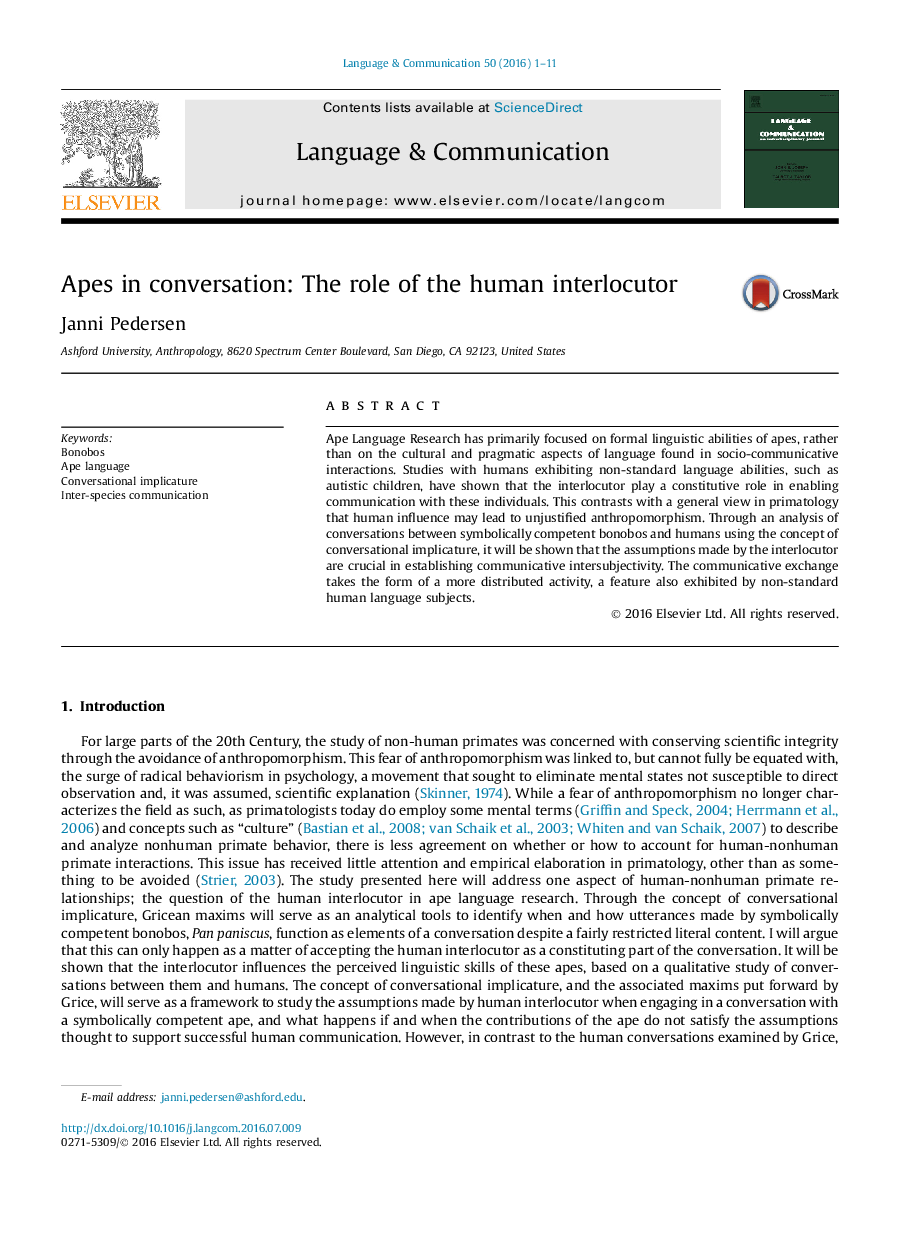| کد مقاله | کد نشریه | سال انتشار | مقاله انگلیسی | نسخه تمام متن |
|---|---|---|---|---|
| 934651 | 1474915 | 2016 | 11 صفحه PDF | دانلود رایگان |
• Symbolically competent bonobos may engage in conversational exchange above the sentence.
• Human interlocutors may be understood as constitutive contributors in ape symbolic distributed communication.
• Human non-standard language users also rely on distributed communication.
• Assumptions about interlocutor influence communication with non-humans as with humans.
Ape Language Research has primarily focused on formal linguistic abilities of apes, rather than on the cultural and pragmatic aspects of language found in socio-communicative interactions. Studies with humans exhibiting non-standard language abilities, such as autistic children, have shown that the interlocutor play a constitutive role in enabling communication with these individuals. This contrasts with a general view in primatology that human influence may lead to unjustified anthropomorphism. Through an analysis of conversations between symbolically competent bonobos and humans using the concept of conversational implicature, it will be shown that the assumptions made by the interlocutor are crucial in establishing communicative intersubjectivity. The communicative exchange takes the form of a more distributed activity, a feature also exhibited by non-standard human language subjects.
Journal: Language & Communication - Volume 50, September 2016, Pages 1–11
